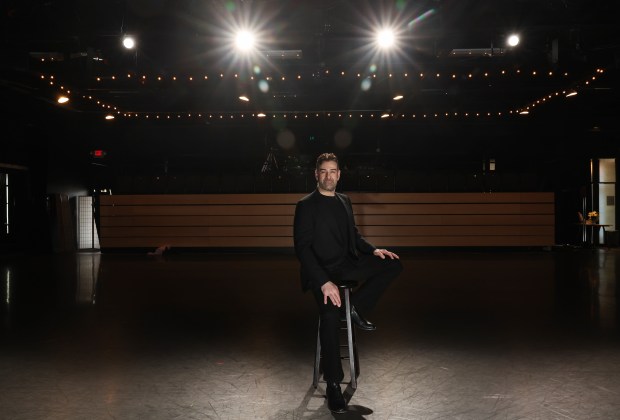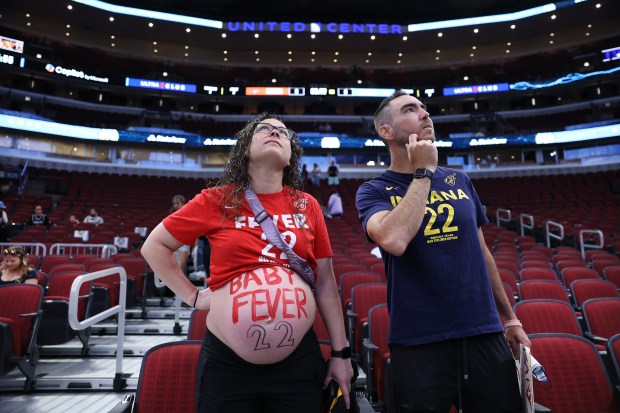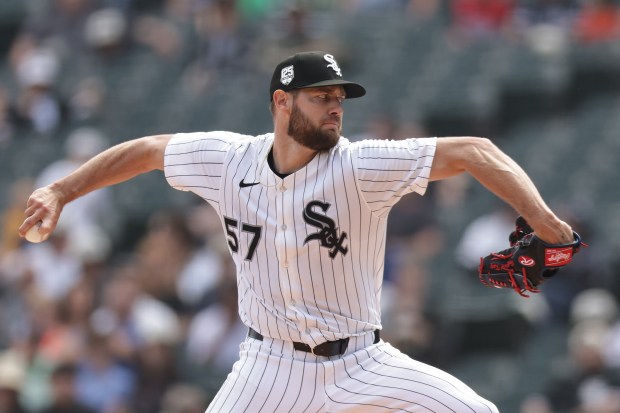Paul Marinaro came to Chicago by car, driving in from Buffalo, New York, where he was born and raised, the youngest of 10 children. He carried with him some clothes, a few record albums, some books and something special.
“I came here carrying my father’s dreams,” he said. “My dad had wanted to be a singer. That was his passion. He even cut some records, homemade, but he never got the chance to sing professionally. Raising 10 kids and having a wife didn’t exactly work for someone who wants a singing career.”
Paul has had a singing career, a fine and active one that arrives Sunday at Evanston’s Studio 5, with Mariano and 14 musician pals celebrating his latest album, “Not Quite Yet.” As critic Dick LaPalm puts it, “Paul Marinaro … is the best I’ve heard in many years. His insight and command over this material is truly staggering, making him one of that select cadre of storytellers.”
“I have been fortunate,” Marinaro says. “I have been blessed. I can look out at an audience and see some young faces and so many familiar ones too. I’ve been lucky to have built a solid and devoted fan base.”
Lucky? Maybe, but he also deserves it, for he has been at it since the night 20 years ago when he walked into Gentry, the bygone Rush Street night spot where the ebullient singer Nan Mason was performing. She coaxed young Paul to sing. He did. He offered “You Go to My Head.” The crowd responded. He was hooked, remembering, “I was so green. In Buffalo, I had only had a few what I would call semi-pro gigs. But I felt something that night, felt this a friendly city, thought I could learn as I went along, really felt ‘I can do this’.”
He came without knowing a soul but in a short time got to meet and learn from such local jazz and cabaret giants as Audrey Morris. He took over for Buddy Charles at the Drake Hotel’s Coq d’Or, often with Judy Roberts. He dressed in a Victorian costume to perform Christmas songs at Lawry’s. He sang in rooms large and small and noisy but still, “even with tough, distracted crowds there were moments when you know you are connecting.”
In 2013 he cut his first album, a remarkable and haunting “Without a Song,” which was a salute to his father and intercut bits of his dad’s homemade, 78 r.p.m. recordings with his own modern-day tracks.
“It was two generations communicating across time,” said Paul. “That is one of the great joys of music, sharing it through generations.”
His father Joseph was at the Jazz Showcase in June 2013, when he formally debuted “Without a Song.” His father was, as you might imagine, overwhelmed. Others too. The album drew attention from critics, club owners.
As Marinaro said at the time, “I did not expect the burst of activity … that it gave me. A lot of career firsts and achievements. … All the rooms I had wanted to work prior were suddenly open to me. There really was that sense of sudden change.”
He was able to make a successful engagement at Birdland in New York. As he told my former colleague, Howard Reich, “it was a monumental night for me.” But it was also “a source of disappointment,” in that he wasn’t well enough to take advantage of the many offers that followed.
That is because he was hospitalized with diverticulitis. He had to be rushed to an emergency room. There was a lengthy stay and several operations. His friends in the music community helped raise funds for his care.
He eventually came back health, only to have to slow down during the pandemic. The ensuing interlude allowed him to ambitiously create “The Bowie Project.” He performed that album with the Metropolitan Jazz Octet at Space in Evanston last year. It was called by critic Darnell Jackson “a compelling reimagination that dares to examine Bowie’s work through the lens of chamber jazz.”
Listening to Marinaro on any of his four albums one can appreciate the critical praise that has come his way. None was more ardent than Reich, who wrote, “Marinaro has evolved into one of the most accomplished and promising jazz-swing vocalists in the country … one of the most beautiful vocal instruments in the business today.”
Talking to him you discover a thoughtful, honest and introspective man, one who appreciates where he is in the world, which has recently included international performances. “Music is all about community,” he says. “This is not just a job, it’s an extension of myself.”
In concert 6 p.m. Feb. 18 at Studio5 Performing Arts Center, 1938 Dempster St., Evanston; tickets $37.34 at www.studio5.dance
rkogan@chicagotribune.com





